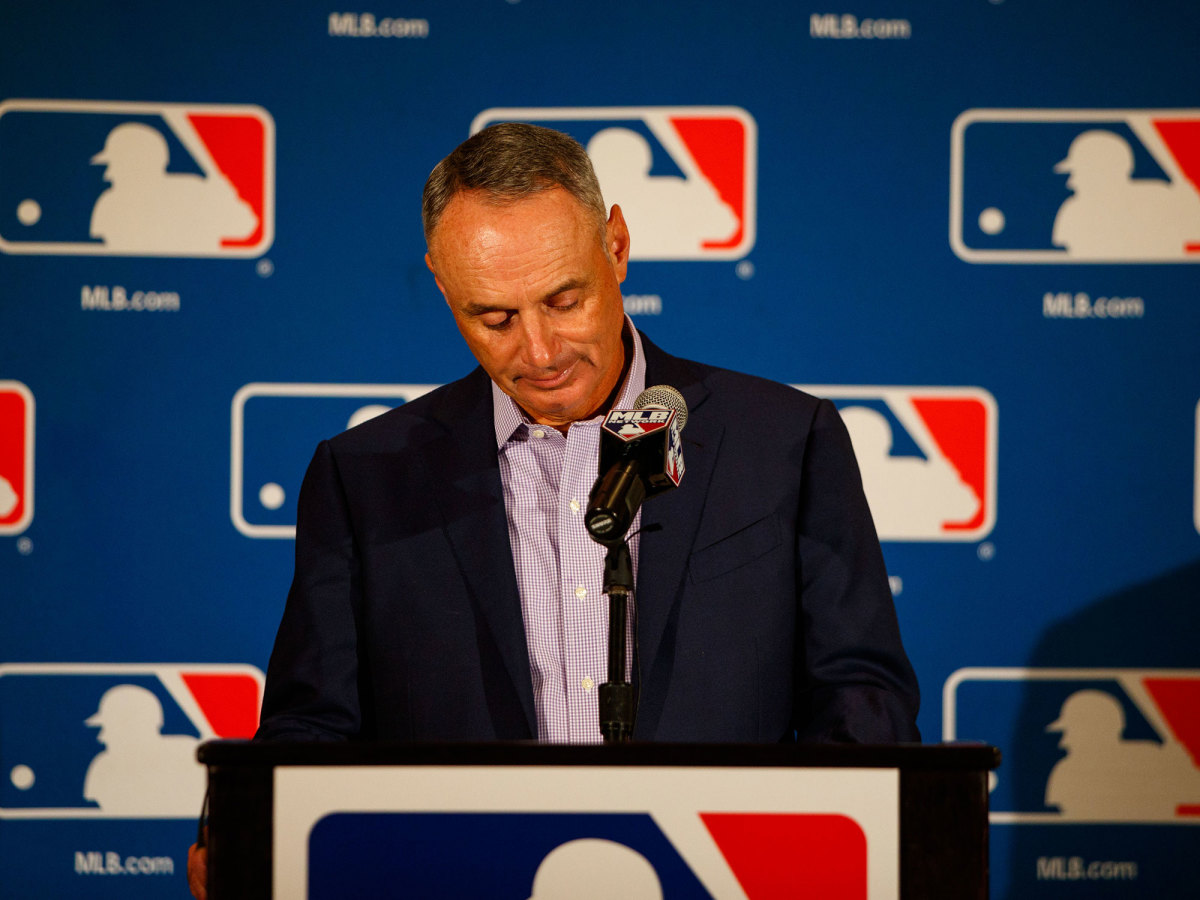MLB's Silence on Rule Changes Leaves Players and Teams Stuck
For much of the offseason, free agent designated hitter Nelson Cruz has worked out three times a day in his hometown of Las Matas de Santa Cruz, Dominican Republic. He hits and lifts and does cardio. One thing he does not do often is check in with his agent, Bryce Dixon.
Cruz knows he is unlikely to sign with a team anytime soon. He is probably the most prominent player held hostage by a twist in MLB’s offseason: No one knows what rosters will look like next year.
As part of a flurry of pandemic-induced changes during the 2020 season, the league and the players association agreed to use the designated hitter in the National League and to expand rosters from 26 to 30 for the first two weeks of the season and 28 thereafter. The collective-bargaining agreement expires in a year, and the two parties will likely discuss making one or both of those adjustments permanent for ’22 and beyond. That leaves ’21.
“It’s just kind of hanging over everyone’s head,” says one NL executive. “Like, What is the deal?”
MLB emailed teams about a week ago—shortly before the Dec. 2 non-tender deadline—to instruct them to proceed as if there will be no DH in the National League. Teams say they have received no guidance about roster sizes.
“I don’t know that [the email] clarified anything for anyone,” says another NL exec. The league did not rule out the possibility that it might come to an agreement with the union, nor did it set a deadline after which it refused to negotiate.
Both sides see the benefit in a universal DH: The union likes the idea of more jobs for its members; the league likes the star power that sluggers tend to bring. There is also the issue of the current run-scoring environment: Pitchers struck out 23.4% of batters faced in 2020, the most ever. (The year with the second most? ’19. Third? ’18. And all the way back to ’08.) No one wants to watch yet another rally fizzle out as the pitcher flails wildly at three fastballs.

And yet the league and players association have not been able to shake hands (or bump elbows). The feeling among many team officials is that MLB hopes to use the issue not as a bridge to a broader deal but as a chance to extract concessions.
All this bickering leaves teams “asked to construct rosters with legitimate questions hanging over those decisions,” says the first exec. They faced their first real challenge with the non-tender deadline. The Cubs cut ties with left fielder Kyle Schwarber, who was the fourth pick in the 2014 draft. He slugged .531 two years ago but struggled last season and was projected to make $7.9 million in arbitration this year. The Braves dropped left fielder Adam Duvall, who hit the third most home runs in the league in ’20 and was projected to make $4.7 million this year. A universal DH might not have kept those players with their teams. But it would almost certainly have made their trade markets more robust. Instead they are both free agents, caught in the same quagmire as Cruz.
“This is not part of the normal [free-agency] cycle,” says Dixon, Cruz’s agent. “I’m normally not advising the player on what I think the rules are gonna be next year.”
For the moment, Dixon plans to take his time. Cruz, who played last season at 40 after the Twins picked up his $11.7 million option, finished sixth in AL MVP voting and second in adjusted OPS (169). Because he is not seeking a long-term deal, he can afford to wait out the market. Dixon says he has had inquiries from National League teams and, unless someone makes an aggressive offer, he sees no reason to restrict the bidding to half the league until the rules are clearer.
There have been less obvious casualties of the uncertainty. Marcell Ozuna, who came up as an outfielder but profiles best at DH, switched agencies last month, reportedly because he was upset that he had not yet received any substantial offers. And Dixon points out that many pitchers, such as Johnny Cueto, whom he reps, also need clarification.
“I don’t know the last time Cueto picked up a bat,” says Dixon, laughing. “I know he doesn't want to hit next year. He hasn’t practiced! Not that I’m saying he’s gonna raise his average, but he hasn’t practiced hitting, bunting, anything.”
No one knows the rules under which they will play the 2021 season. But, executives and agents point out, there is something more important they don’t know, something for which they can’t blame the league or the union: They don’t know when next season will begin.
